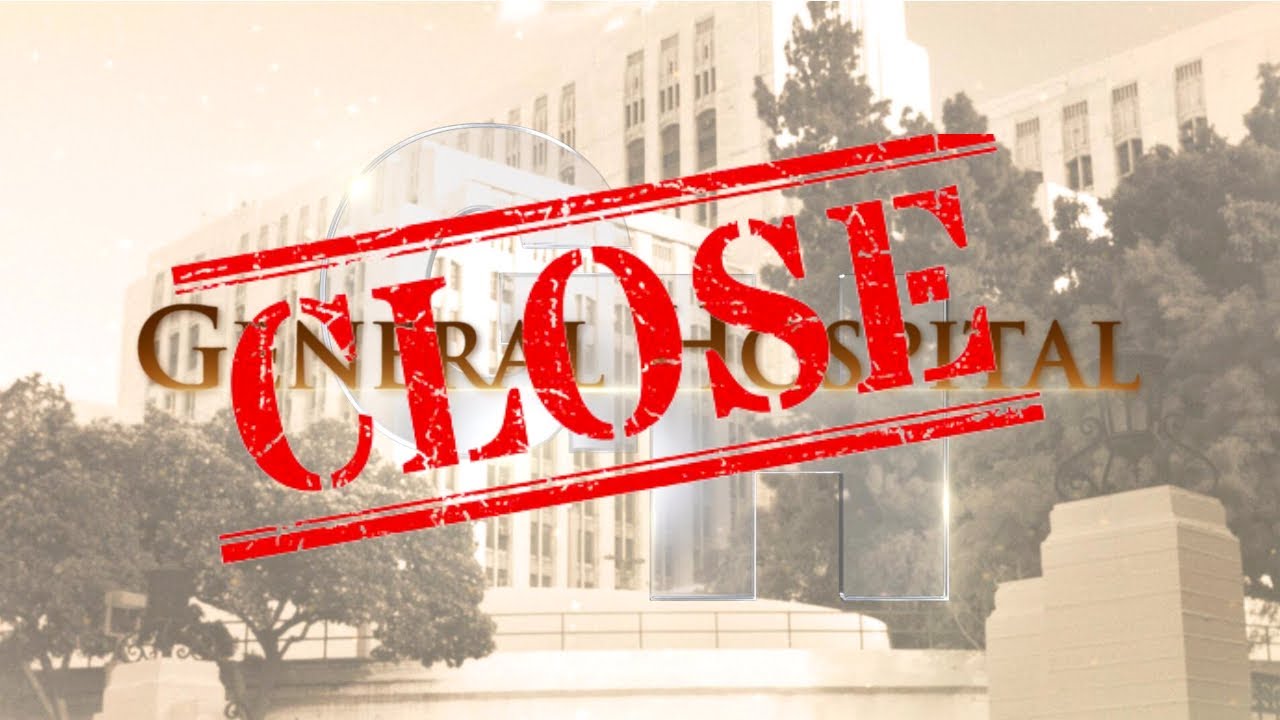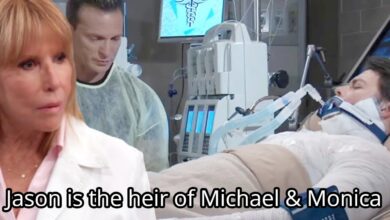GH temporarily suspends production, reveal reason for temporary suspension General Hospital Spoilers
General Hospital is facing a major challenge as storylines involving a fire in the show tragically coincide with the ongoing wildfire disasters in Los Angeles County, especially in the Hollywood Hills area. The sensitivity surrounding these events has put immense pressure on the production team, who must maintain the appeal of the plot while also being mindful not to harm viewers directly affected by the natural disaster.
Scenes involving a fire in the penthouse apartment of General Hospital—a key part of the storyline—have now become a point of controversy. ABC quickly issued a content warning to show empathy and advise viewers to consider their personal situations before watching. However, this did not stop backlash from fans.

Some have argued that such scenes are insensitive and add to the trauma, especially given that thousands of people in LA County are facing displacement and evacuation due to the wildfires. The real-life events in the Hollywood Hills have sparked ethical debates around production practices and significantly impacted the creative process of the General Hospital writers and producers. While they try to adjust the storyline to be more sensitive to the current situation, public opinion and audience expectations have put them in a difficult position.
This raises an important question about how to balance art with social responsibility in the entertainment industry, particularly in such sensitive times.
General Hospital recently made the surprising announcement that it would temporarily halt production. The decision stemmed from the unfortunate coincidence of a major fire storyline involving Michael Corinthos’ penthouse apartment with the devastating wildfires in Los Angeles County, particularly in the Hollywood Hills. While the decision was made to show sensitivity and social responsibility, it quickly ignited a storm of controversy within the fan community, with mixed opinions about how the producers handled the situation.
An announcement from the producers stated that the hiatus was made to avoid causing emotional distress to viewers directly affected by the wildfires. With thousands of people being evacuated from their homes and many communities in LA County facing a natural disaster, airing fire-related scenes could exacerbate grief for audiences. This move is seen as an attempt to express empathy and responsibility on the part of General Hospital toward its viewers.
However, the decision has divided the fan base. Some supported the move, calling it a wise and humane decision that shows care for real-life suffering. “I respect the way GH handled this. They understand not everyone can watch these scenes without feeling pain,” one viewer expressed on social media.
On the other hand, some criticized the decision, arguing that the hiatus disrupts the storyline and damages audience trust. “Why didn’t they anticipate this when developing the plot? It’s hard to accept when the episodes were building to such a climax,” one fan commented. Others argued that it diminishes the entertainment value of the show, which many rely on as a temporary escape from real-world problems.
The suspension has also raised questions about how the writers handle sensitive plots. Some fans believe the producers should have crafted a storyline that better avoided elements that could cause harm, especially given that natural disasters are becoming more common. The scenes involving a fire in Port Charles, rather than creating drama, are now seen as poorly thought out and distasteful.
The hiatus decision not only puts the producers in a challenging position but also creates significant difficulties in regaining fan trust. The creative team will need to carefully consider how to proceed with the fire storyline while ensuring sensitive issues don’t detract from the core entertainment value of the show.
This situation also presents an opportunity for General Hospital to demonstrate its adaptability and its ability to adjust to real-world circumstances, showing that the show is not just an entertainment product but one that listens to and empathizes with its audience. The next steps for the production team—from script revisions to resuming the broadcast schedule—will play a critical role in reshaping the relationship between the show and its fans.
With this decision to pause, General Hospital walks a fine line between protecting its humanitarian image and maintaining its appeal to viewers. The next moves will certainly be closely watched, and the show will need a careful strategy to keep audiences engaged while resolving tensions surrounding this decision.
The big question is whether General Hospital can overcome this challenging moment and reaffirm its place in the hearts of viewers.
News about Cameron Mathison’s home being destroyed in the wildfires in Los Angeles, coupled with Chad Duell’s departure, has placed General Hospital in a difficult situation. The decision to halt production is believed to stem from both of these significant events, fueling speculation about a potential large-scale restructuring in the future.
This not only affects the production team but also places pressure on the show’s storylines, pushing Port Charles into a state of uncertainty. Chad Duell’s departure has left a significant void in the plot, particularly since his character, Michael Corinthos, plays a crucial role in family conflicts and relationships in Port Charles. Combined with the personal tragedies of Mathison, GH is now faced with adjusting not just its storyline but also its character dynamics.
The production halt is seen as the only way for the creative team to take the necessary time to reassess the direction of the show during this turbulent period. The story of Cameron Mathison’s home being destroyed is not just a personal tragedy but has come to symbolize the instability the show is facing.
The challenges of reworking the plot at a time when reality and art are colliding so sensitively have added more pressure on the production team, especially when personal factors from the main cast strongly impact the continuity of the show’s narrative.
The restructuring process is not just an opportunity for GH to explore new directions but also presents numerous risks. Fans accustomed to dramatic yet familiar storylines may not easily accept major changes. Moreover, rebuilding from the core requires writers to create compelling narratives to retain viewers.
However, the outpouring of reactions from fans also shows that GH still holds a special place in viewers’ hearts, with the hope that the show will overcome these challenges and return stronger.
New storylines surrounding Port Charles—especially resolving Michael and Drew’s unfinished business and unaddressed family conflicts—will play a key role in rebuilding audience trust.
The decision to halt production, though controversial, is seen as a necessary step for the show to face its challenges and find a sustainable path forward. With this change, General Hospital is at a major crossroads, where every decision will not only impact the fates of characters but also reshape the entire show in the eyes of its fans.
The upcoming developments will reveal how GH navigates this crisis and showcase the creative flexibility of one of television’s longest-running dramas.
General Hospital is preparing for the return of some major surprise characters, promising to heat things up and bring a fresh breeze to Port Charles. Familiar faces who have previously left the show will return to push the storyline to new heights and keep fans hooked.
However, amid this excitement, a somber reality is unfolding offscreen, as wildfires in Los Angeles continue to cause significant damage. The return of key actors not only reaffirms GH’s standing with fans but also provides an opportunity for important storylines to continue or new angles to be explored.
This is a crucial time for the show to regain momentum after recent struggles. However, this event takes place while wildfires in LA County, particularly in the Hollywood Hills area, are still raging, casting a shadow over the excitement of fans.
Viewers are not only concerned about how GH will handle unresolved storylines but also express empathy for those affected by the fires. The GH producers have shown sensitivity to this reality by pausing the broadcast and issuing content warnings. Now, the pressure is mounting to strike a balance between continuing production and respecting the emotions of viewers.
The return of General Hospital promises to be not just an eagerly anticipated television event but also a test of the show’s ability to maintain audience trust while handling offscreen elements delicately.
Will these special returns generate new buzz for the show, or will the harsh real-world context continue to overshadow the production team’s efforts? Only time will tell, but it’s certain that the upcoming episodes will be a focal point for both the fan community and the television industry.










